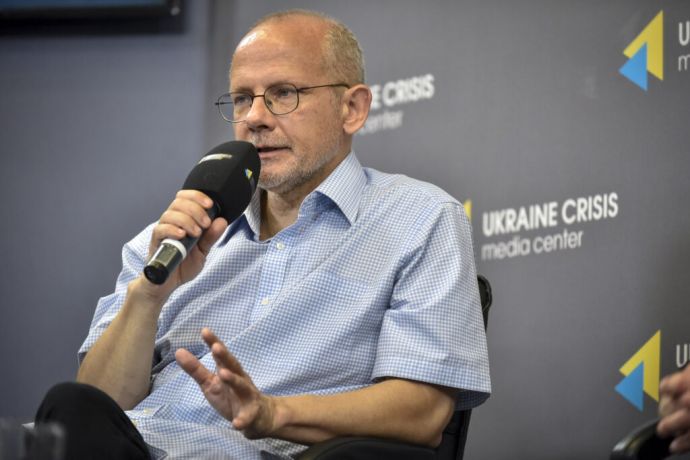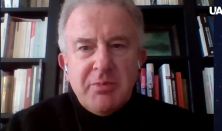Andreas Umland, Analyst Stockholm Centre for Eastern European Studies, The Swedish Institute of International Affairs, in an exclusive interview on the energy crisis in EU, infrastructure supply alternatives, and Turkey’s role in mediating Russia-Ukraine war.
How to survive this winter amid the energy crisis, would the restrictions help significantly for every European country?
For countries like Germany, they are significant. Because we have driven ourselves into a dead end over the past 20-30 years by creating for ourselves this partial dependence on Russian energy carriers. And now we will need time to rearrange our industry and infrastructure to import energy from other countries. And it’s not ready yet. And this is important for this transitional period. Some industries use gas as raw material, and there is a danger that parts of this industry may close, either temporarily or constantly. And so now they are trying to limit energy consumption in order not to close these plants. I don’t think that anyone will be cold, or there will not be enough electricity or heating somewhere. But for Germany and for some other countries, this has really become a problem now.
Now Germany is preparing a new basis for the adoption of a law on energy security. To what extent are European countries now prepared for the fact that a number of industrial enterprises will stop?
They understand everything. And I think that by 2023-20024 we will completely pass this dependence on Russian energy. But for this transitional period, that’s the whole difficulty. As yet, there is no alternative infrastructure to keep these enterprises. And there the problem is that in Germany there are, of course, lobbyists. There are these enterprises themselves, and trade unions, which they are not very interested in world politics, they simply advocate the interests of their members of these trade unions and industrial associations. And they demand from the state that there is enough gas, in particular. And so that these enterprises do not close. And it will be difficult now. Much will also depend on European solidarity, how countries will help each other there. But I think that strategically Russia will bear the biggest losses, because it is already losing these markets forever. And Russia also does not yet have a developed alternative infrastructure to supply these huge volumes of gas from Western Siberia to other regions of the world. There is, of course, demand also in other regions of the world. But Russia has the same problem of how to supply this gas there.
Read also: I’ve opened my own front: an interview with Ukraine’s singer Jamala
Why do European countries support the embargo on Russian energy from one country, and delay this issue from the other side? Do I understand correctly that this issue of alternatives began to be dealt with only after the full-scale invasion of the Russian Federation?
Yes, alas, these reflections only began at the end of February. And now they are connected with these sanctions rounds, and the fact that Russia still has this dependence of the European Union on Russian energy. They are still trying to take advantage of it. That is why Russia also understands that in a year or two this opportunity will no longer exist, because there will already be terminals, more terminals for liquefied gas, there will be a transition to some green technologies. Well, and it was all like this, I would say, from a Western point of view, a misunderstanding, a misunderstanding of this Russian imperialism. That is, they counted on the fact that we would create mutual dependence with this network of these pipelines, and that yes, we would be dependent on Russian gas, but Gazprom would also be dependent on payment for this gas, which it supplies to the European Union. And, in principle, it is. This is mutual dependence. But here, apparently, in Moscow these are some kind of irrational, long-term, strategic reasoning, they do not play such a role. And there people are guided, there by some kind of emotional prerogatives. The West underestimated it. And now there is a search for all sorts of alternatives, which are the only possible ones. This is the extension of the operations of nuclear power plants there, which were actually supposed to close this year, or the use of coal to a greater extent. This is green energy, this is liquefied gas, new pipelines. There, well, everyone is now looking for, first of all, where to get gas from, and how to also switch to other technologies for generating electricity so that the gas is no longer burned to generate electricity.
And here we already had such a big discussion in Germany in the spring about if Germany itself would stop this import of Russian gas, and there was always such a large camp of economists who said, yes, it will cost us 2-3% of GDP, but we can do it. It will be an economic crisis, but it is possible. And there will be no collapse in the German economy. But we have also a political factor here, that, of course, there are simply governments, trade unions, associations of enterprises that put pressure on the German government so as not to reduce the supply of gas to the enterprise, so that enterprises do not close . There is still such a political factor here, which also needs to be taken into account, that there are simply regions, there are certain social groups that are fighting here for their rights or for their interests.
Let us talk about the role of Turkey in the Russian-Ukrainian war. Turkey is trying and offering its role as an intermediary. But we see that Turkey is trying to take such a serious position for the EU as well. Why does Turkey still want, in your opinion, to be a leader in this matter?
This policy of Turkey is connected with its internal interests and its future elections. And here, after all, Turkey has such a very contradictory position, which, on the one hand, builds relations with Russia, on the other hand, helps Ukraine and cooperates with the European Union. Well, Turkey apparently simply found itself here, as in this role of an intermediary, such a neutral side. In this position, it can simply take advantage of the fact that right now there is such an imbalance between the European Union and Russia. Turkey simply pursues its own interests by providing its services to Russia and Ukraine, and the European Union and everyone. But I think that this is all the same if you look at the history of Turkish-Russian relations, and also at the conflict regions where Turkey and Russia are rather rivals, Central Asia, the Caucasus, the Black Sea, Syria, Libya. In all these regions, the interests of Russia and Turkey diverge. And this rapprochement, which we have now observed in recent weeks between Russia and Turkey, is most likely temporary. And I think that Ukraine just needs to use what Turkey offers, indeed, maybe it is, despite this cooperation, which also exists with Russia. Despite this, perhaps Turkey will be useful for Ukraine here as a mediator in these energy or political issues.













